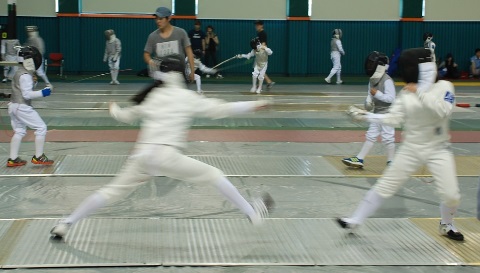
Today we’re about disqualifications that didn’t (or haven’t yet) hit their marks. Several interesting ones to share. (And I’ll note that I am not left handed…)
First, an IP matter. (An area I’m finding myself spending a bit more time. For any curious about the latest operational and policy developments by the USPTO, I’ve done a bit of recent writing here, pardon the self promotion.) Regarding our DQ theme, we have: “Pierce Bainbridge Scolded But Dodges DQ In Patent Suit” —
- “A New York federal judge has ruled that a Pierce Bainbridge attorney stepped over the line by recording a conversation with an employee for a Chinese company that is being sued for patent infringement by a company the firm represents, yet said the firm could still stay on as counsel in the suit.”
- “‘[The attorney] went beyond general attendance or commercial transactions and asked specific, targeted questions related to the scope of Xiaomi’s business operations in New York,’ the judge said. ‘This line of questioning is reminiscent of that in a deposition.'”
- “In a motion Dareltech filed immediately after Judge Hellerstein’s order, the company said the employee Hecht and an investigator spoke with in fact worked for Xiaomi Technology Inc., a separate company that was not added to the suit until January. Thus the employee was not a represented party, the motion said.”
- “In a seeming effort to counter this, Hecht attended a promotional event in December with an investigator, the decision said. While there, Hecht questioned Xiaomi employees about the company’s New York presence, and were told that the company had a division based in Manhattan, but that it was ‘a secret operation,’ according to the decision.”
Next up: “Federal Judge Rejects Motion by DOJ to Disqualify Defense Attorneys in Illegal Drug and False Marketing Case” —
- “A South Florida judge has rebuffed an attempt by the Department of Justice to prohibit two Miami attorneys from representing their clients in federal court.”
- “U.S. Magistrate Judge William Matthewman denied a prosecution motion to disqualify the defense counsel for dietary supplement company Blackstone Labs and its CEO Phillip Braun on Monday. The department’s April 1 motion asked the court to bar attorneys Benedict Kuehne and Michael Davis from representing the defendants in the Southern District of Florida.”
- “The agency’s motion contended the Kuehne Davis Law litigators ‘should not be allowed to handle the charged case because the firm also represented a number of company employees as fact witnesses during the grand jury investigation.'”
- “However, Matthewman’s 17-page order rejected the DOJ’s motion and allowed Kuehne and Davis to appear as defense counsel. The judge asserted the three conflict-laden witnesses cited by the prosecution are no longer represented by Kuehne Davis Law.”
- See the text of the order here.
Next, from Hinshaw: “No Harm, No Foul: Disqualification Not Warranted When City Attorney Obtained Privileged, But Irrelevant, Communications During Internal Affairs Investigation” —
- City of San Diego v. The Superior Court of San Diego County, D073961 (Cal. Ct. App. 4th Dist. Modified Jan. 7, 2019)
- “During an internal affairs investigation concerning the leak of a confidential police report, the Police Department of the City of San Diego (the “City”) questioned a police detective about communications she had with an attorney who was representing her in a harassment and retaliation lawsuit against the city.”
- “Under the threat of discipline and termination, the detective invoked the attorney-client privilege. After the detective was informed the City Attorney had determined the privilege did not apply, the detective disclosed the privileged communications during a second interview with the Department and the City Attorney.”
- “The appellate court found that the City Attorney violated the attorney-client privilege and the rule of professional conduct prohibiting an attorney from communicating with a represented party about a pending matter.”
- “However, as disqualification is a drastic remedy meant to be prophylactic and not punitive, the appellate court reversed the trial court’s order disqualifying the City Attorney, determining that disqualification was not warranted because the transcript of the interview established there was no genuine likelihood that the City’s misconduct would provide it with an unfair advantage or in any other way affect the outcome of the proceedings before the court.”
And finally, from Scotland: “Client fails in appeal against decision to dismiss complaint against lawyer as ‘time-barred’” —
- “A disgruntled litigant whose complaints against a Scots lawyer and a law firm were rejected as time-barred has had an appeal against the decision dismissed.”
- “A judge in the Inner House of the Court of Session held that the Scottish Legal Complaints Commission (SLCC), in exercise of its ‘gatekeeping or sifting function,’ was entitled to exercise to its discretion by reaching the conclusion which it did.”
- “Lord Menzies heard that the applicant John Innes was seeking leave to appeal against the SLCC’s determination that the applicant’s complaints against a solicitor employed by Pinsent Masons were each time-barred in terms of rule 7 of the Rules of the Scottish Legal Complaints Commission.”
- “‘The applicant did not identify any exceptional reasons why the complaint was not made sooner, either in his response to the commission or before this court, and the commission could find none. Similarly, the applicant provided no information about any exceptional circumstances relating to the nature of the complaint and the commission could find none.'”
- Full text of the ruling here.
